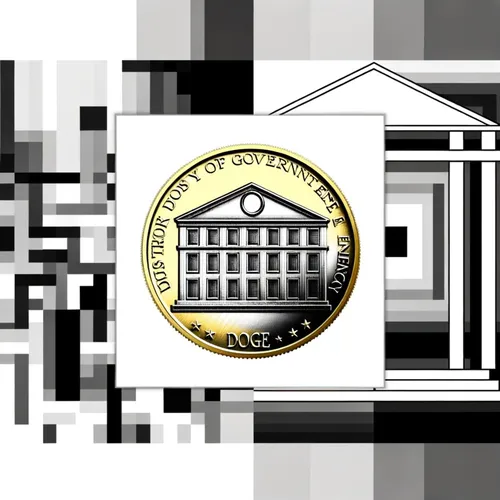DOGE: How Government Innovation Meets Cryptocurrency to Revolutionize Bureaucratic Efficiency and Taxpayer Savings
- Author
- Quiet. Please
- Published
- Thu 12 Jun 2025
- Episode Link
- https://www.spreaker.com/episode/doge-how-government-innovation-meets-cryptocurrency-to-revolutionize-bureaucratic-efficiency-and-taxpayer-savings--66537214
Gov Efficiency: DOGE Coin of Bureaucracy?
In a surprising twist of government innovation, the Department of Government Efficiency, known as DOGE, has been making waves since its establishment by executive order in January 2025[1]. As of just four days ago, DOGE has claimed to save American taxpayers $180 billion, though independent analysis suggests these savings might actually cost $135 billion[3].
The initiative, which shares its acronym with the popular cryptocurrency Dogecoin, has sparked conversations about the intersection of government operations and blockchain technology. Cryptocurrency enthusiasts have even created a Department Of Government Efficiency token, with price predictions suggesting it could reach a maximum value of $0.5334 by the end of this year[4].
Meanwhile, Solana, another cryptocurrency, has seen its chances of surpassing its previous peak of $293 by year-end drop to just 27%, according to data published two days ago[2]. This decline comes amid broader discussions about how blockchain technology could revolutionize government operations.
In April, experts highlighted how blockchain could help governments modernize capital issuance, increase transparency, and enable broader participation from investors[5]. The tokenization of traditional assets is already happening globally, with Hong Kong issuing the world's first tokenized green bond in 2023[5].
The U.S. is reportedly considering strategies around maintaining reserves of blockchain-based assets like Bitcoin as a source of diversification, recognizing the strategic role these digital assets play in our evolving financial landscape[5].
The DOGE initiative presents an opportunity to evaluate these use cases and potentially expand the adoption of crypto, blockchain, AI, and other emerging technologies across government functions[5]. As these technologies continue to develop, they may offer new ways for governments to serve citizens more effectively in our increasingly digital world.
Whether DOGE represents the future of government efficiency or just another bureaucratic experiment remains to be seen, but its impact on both government operations and the cryptocurrency market continues to unfold.
